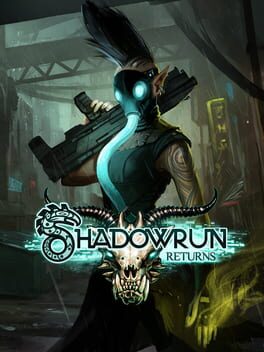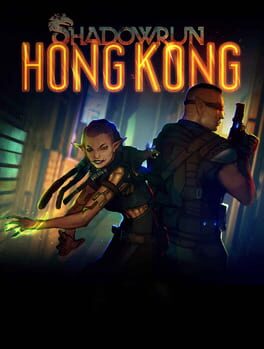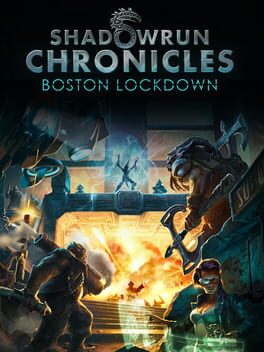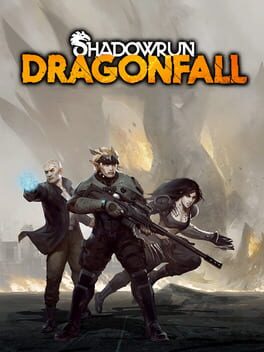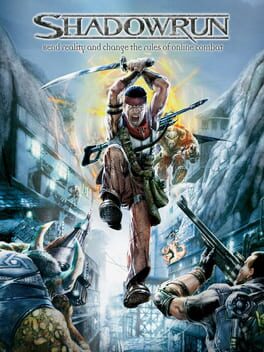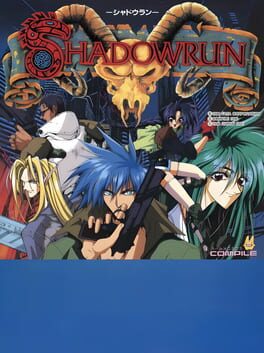

The year is 2054. Magic has returned to the world, awakening powerful creatures of myth and legend. Technology merges with flesh and consciousness. Elves, trolls, orks and dwarves walk among us, while ruthless corporations bleed the world dry. You are a shadowrunner – a mercenary living on the fringes of society, in the shadows of massive corporate arcologies, surviving day-by-day on skill and instinct alone. When the powerful or the desperate need a job done, you get it done… by any means necessary. The unique cyberpunk-meets-fantasy world of Shadowrun has gained a huge cult following since its creation nearly 25 years ago. Now, creator Jordan Weisman returns to the world of Shadowrun, modernizing this classic game setting as a single player, turn-based tactical RPG. With the Shadowrun Returns Editor, everyone is empowered to create and share their own stories and campaigns with the Steam Workshop community. You can even explore the entire Shadowrun Returns Seattle campaign in the Editor directly – see how it was built and borrow as much as you need to jump-start your own creations! No advanced coding or art skills are required to create content using the SRR Editor.
Also in series
Released on
Genres
Reviews View More
But the depth in those aspects are quite lacking, especially as you reach a certain chapter where things start to get quite wild, story-wise. The progression of the story's scale and stakes in the 2nd act already feels a bit sudden and unnatural on its own. But combined by all the side characters not being fleshed out enough, the disappointingly same-y level and encounter design, and a unwelcomed difficulty spike in this act, I can't help but feel a bit disappointed with how they executed the game's second half. It almost feels rushed.
A big part of why I loved the first half of the game is how well the game introduces all sorts of interesting lore through its main missions, while maintaining this delightful detective vibe in its gameplay. From delving into Seattle's drug addict woes, to dealing with dead spirits in order to gain their testimony of an event nobody else saw, there's all sorts of stuff happening in the 1st act that I really enjoyed. You don't have to figure the story out yourself, but the CRPG gameplay of exploring thoroughly to fully scope out all your options fits perfectly with its premise of trying to figure out who killed your old friend. Even if the gameplay possibilities and options aren't that extensive (it's a relatively small scale game after all), the act of playing detective and getting yourselves some allies along the way is still a fun endeavor. The 2nd and 3rd act unfortunately doesn't have quite the same level of variety and memorability.
The RPG systems are pretty decent for the most part. Outside of combat, the various stats serve mostly to unlock certain dialogues options or pathways that usually will save you a minute or two of your time, and in the sense of their usefulness, there is a lot of room to improve on. Coupled with the somewhat cramped level design, it can feel more like a linear story rather than a CRPG. But executing these bonus options still feel satisfying.
In regards to combat, these systems feel more fleshed out, since the abilities and bonuses you'll get for advancing in the game's various combat stats feel much more helpful. For example, being able to mark a target to temporarily increase the chance of hitting them by advancing the Decking stats, and combining that with abilities such as full-auto assault rifle attacks. But do note that the combat follows the XCOM system of hit percentages, so be prepared for utter frustration as you miss attacks with 90% hit chance.
All in all, Shadowrun Returns feels more like a prelude of what's to come, rather than a completely realized idea. Still, I did have a fun time playing it, and I will be checking out the sequels someday to see if they ever get to fulfill this game's potential.
It was almost a decade ago that I had the pleasure of my friends pointing me toward Shadowrun: Dragonfall when I was getting my feet wet with old-school and throwback CRPGs, and since then that game has become one of my favorite RPGs of all time. I followed it up immediately with Shadowrun: Hong Kong and while that game was ever so slightly the inferior of the two in writing, it too wowed me with its incredible plot, mood, and world-and-character-building.
I'm going to warn you right now, I am going to compare this game to those two games non-stop throughout this review.
You see at the time, I was told to go directly to Dragonfall - skip Returns. "It's the worst one," "it's really barebones," "it's basically a proof of concept" came the warnings, and coming from friends whose opinions I'd trusted, that was good enough for me. But years later and as I find myself delving into the genre again with CDPR's Cyberpunk 2077, and after doing a little listening to the (very catchy) soundtrack on youtube, curiosity got the better of me. I legitimately wanted more Shadowrun, so I decided to finally ask the question: is Shadowrun Returns any good?
The answer is yeah. It is any good. On the other hand, all my friends were right on the money. Shadowrun Returns has all the same mechanics as its expansion and sequel (with fewer guns, spells, and equipment of course) and largely plays like Dragonfall with a missing quality of life feature from the latter here and there... though with some questionable mission design. Decking is only necessary in one run in the entire game, and it's never done simultaneously with meatspace combat. Cyberware is limited to glorified stat boosts, so magic seems more fun, and simply shooting a guy with a gun seems to be more fun and more optimal. Other than that it's not bad. Hasting yourself and firing an assault rifle on full auto and instantly killing a dude is still fun.
The big issue is that Returns is empty. Set in the aptly-named Redmond Barrens in future Seattle, SR's plot is that your friend Sam has been killed and sent you a video-email triggered by a dead man's switch asking you to find his killer in return for a whole lotta money. Turns out there's a serial killer involved, and the rabbit hole goes deeper from there. Unlike Dragonfall or Hong Kong, however, that depth doesn't extend to the themes. The story progresses in a linear fashion and while there are one or two big revelations, none of them evoke fear or awe or catharsis, none of them require you to pay any great amount of attention to the characters and what they tell you about themselves or the world around you. There's no enriching emotional payoff for doing something thoughtful for another person, nor is there any eureka moment for figuring out a great mystery the game has put before you. The game explains everything that is happening to you very matter-of-factly, which is fine, but given that Dragonfall and Hong Kong do all these things I've mentioned and more, it's a little underwhelming.
Ironically, while the plot is incredibly easy to follow, the dialogue, ridden with setting-specific slang, can be a bit impenetrable or worse still, undermine the tone. SR assumes you know what the UCAS is, it assumes you know why people sometimes speak in Japanese loanwords, it assumes you know who Renraku and Ares are and why everyone keeps saying "chummer." One guy threatened me by calling me an "aho" and telling me I was about to "get fragged" and I think if a guy said that to me with a gun in his hand I would laugh in his face before getting shot.
The maps are similarly shallow - they're pretty enough, lots of little visual detail, but remarkably few things to interact with and virtually nothing to explore beyond finding a medkit or grenade in a junk pile sometimes. Whole rooms and closets and hallways will exist as nothing but set dressing. No fights, no secrets, no alternate routes or optional encounters or incidental NPCs. Again, this is all very notable because this game's sequels don't do this.
There's no party to speak of, just a bunch of nameless NPCs with headshots you can hire for each run using your own money (which you get a LOT of specifically for this purpose), with a few named recurring characters sprinkled in who participate in the plot sometimes but otherwise largely do not intersect with your story. I get that they were trying something different from other CRPGs here but this is one of the game's biggest flaws and given the depth of the character writing in the games to follow, it's clear the devs felt this way too. To make matters worse, the scaling on hiring prices seems to be all over the place. At the start of the game, mercs are very affordable with plenty of wiggle room for you to buy equipment, but the costs quickly double or triple and outstrip the money you're making off of runs, which nearly led to me having to run some jobs solo - that is, until I realized that the Nephilim Network - a second tab of mixed-build mercs (which I believe are kickstarter backers) appear to have bugged hiring rates. At the start of the game they're universally more expensive than the normal guys, but for some reason in the back half a bunch of the strongest ones drop from 1500 nuyen to 1000 - and the weakest ones go from 1000 to 3000. My assumption here is that someone typo'd the values on a spreadsheet somewhere, but it's a saving grace for the late game until you suddenly receive an obscene cash injection right at the end of the game and money becomes a non-issue entirely.
Other (admittedly very small) weird holes and design issues crop up towards the end of the game too - some very odd typos appear in character dialogue, with one very minor NPC not using proper punctuation in his sentences (and no it's not a netspeak thing - his dialogue just strikes me as a first draft that missed a proofread.) In the final mission, you'll find yourself at a dead end after clearing out every enemy in the level, but combat doesn't end and no matter how many turns you wait, nothing triggers. I thought it was broken scripting until I looked up the solution - you have to backtrack to a previous room and sit next to a breakaway wall so that the enemy AI will path to you properly and smash through it, allowing you to finish the monster off and progress. It's a minor gripe, but it's also a bit of a sour note on an otherwise pretty fun finale.
Taken altogether, these factors all contribute to a game that feels less like an RPG set in a living, breathing world and more like a series of jobs that your guy does in sequence while occasionally things happen around him. I said towards the beginning that I came into this wanting more Shadowrun. Did I get what I want? Yeah, I think so. It didn't blow me away, but it fed my craving, and perhaps more importantly it sated my curiosity without leaving me feeling worse for the experience. The nicest thing I can say about it is that it made me want to play Dragonfall and Hong Kong again, and it does make me wish they'd make more of these things. That's not bad, all things considered.
This game has a pretty snazzy final boss theme.
Despite those issues I think its a good game. The atmosphere is very well done. The music fits the tone. The story was also good tho I wish we had some actual freedom. Its a very linear game due to the low budget.
The setting is def my favorite part of the game. Urban Fantasy and Cyberpunk is an interesting mix.
I like the leveling up system. I made a blaster mage with some investment in rifles and some extra points in charisma. spells are fun to use.
